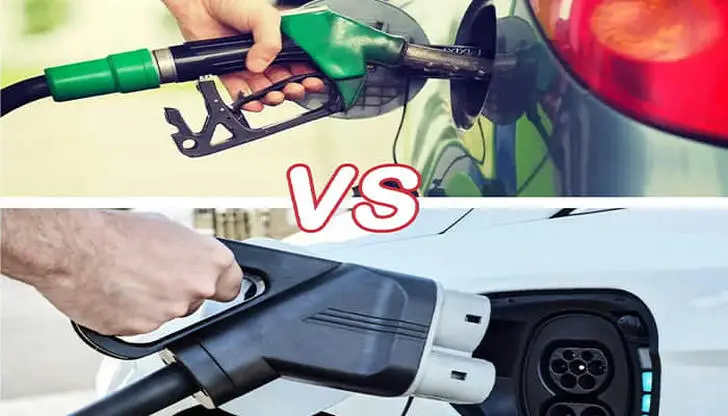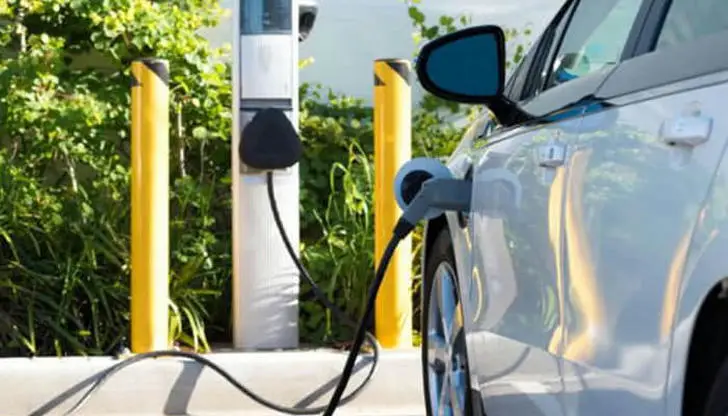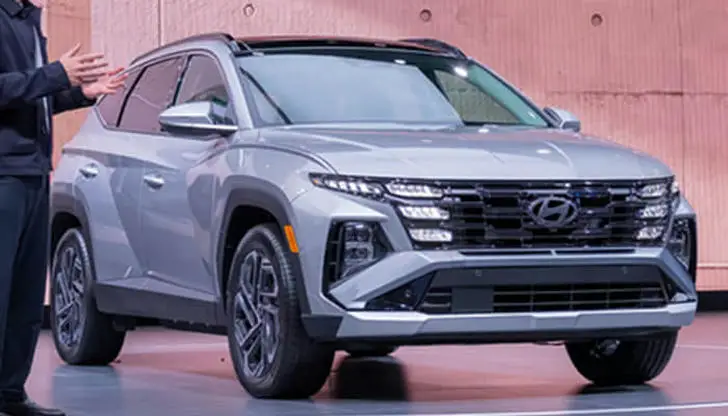Which is Better for Me, an Electric Car or a Gas Car?
Advertisement

The car world is changing a lot. More people are interested in electric cars now, not just ones that run on gas. If you're thinking about buying a car, you might wonder: should I get an electric car or stick with gas? Well, it's not an easy choice. It all depends on what you need and what's important to you.
Over the past decade, advancements in battery technology and government incentives have fueled the growth of EVs. Major car manufacturers like Tesla, Chevrolet (Bolt EV), Nissan (Leaf), and Ford (Mustang Mach-E) are all offering a diverse range of electric vehicles, from sedans and SUVs to trucks and even high-performance sports cars. Electric cars offer several compelling advantages over their gas-powered counterparts. Here's a closer look at the key benefits:
• Environmental Champion: Electric vehicles produce zero tailpipe emissions, significantly reducing your contribution to air pollution and greenhouse gases. With growing concerns about climate change, EVs offer an environmentally friendly transportation option.
• Lower Operating Costs: While electric vehicles typically have a higher upfront cost than comparable gas-powered cars, they offer significant savings on fuel. Electricity is generally cheaper than gasoline, and EVs require less maintenance due to fewer moving parts. Additionally, many governments offer tax credits and other incentives for purchasing EVs, further reducing the overall cost of ownership. Studies by Consumer Reports suggest that EV drivers can spend up to 60% less on fuel costs compared to gas-powered vehicles.
• Thrilling Performance: Electric motors deliver instant torque, providing a smooth and exhilarating driving experience. Many EVs boast impressive acceleration, often surpassing their gas-powered counterparts. Plus, the quiet operation of electric vehicles adds to the overall driving pleasure.
• Government Incentives: Many governments around the world offer tax credits, rebates, and other incentives to encourage the adoption of electric vehicles. These incentives can significantly offset the initial purchase price of an EV.

However, EVs also come with some drawbacks to consider:
• Higher Upfront Cost: As mentioned earlier, electric vehicles generally have a higher price tag than comparable gas-powered cars. The battery, a crucial component of an EV, is a major contributor to this cost.
• Range Limitations: Electric vehicles have a limited range on a single charge, typically between 200 and 400 miles. While this may be sufficient for daily commuting, long road trips can be more challenging, requiring careful planning and stops for charging. The availability of charging stations, especially on long journeys, is still a developing infrastructure in many areas.
• Charging Time: While home charging is convenient, it can take several hours to fully charge an EV battery. Public charging stations, especially fast chargers, can significantly reduce charging time, but their availability and wait times can vary.
• Battery Life and Replacement: EV batteries degrade over time, resulting in a decrease in driving range. Replacing an EV battery can be expensive. While battery technology is constantly improving, it's important to factor in potential replacement costs over the lifespan of the vehicle, which can be around $10,000.

Internal combustion engine (ICE) vehicles, commonly known as gas-powered cars, have been the dominant force on the road for over a century. Here's a look at their advantages:
• Lower Upfront Cost: Gas-powered cars generally have a lower initial purchase price compared to EVs. This affordability makes them a more accessible option for many car buyers.
• Wider Range and Refueling Stations: Gas stations are plentiful and refueling a gas-powered car is a quick and familiar process. This eliminates range anxiety and makes long road trips less stressful. You can fill up your tank in a matter of minutes and be back on the road.
• Established Infrastructure: The infrastructure for gas-powered vehicles is well-developed. Gas stations are readily available in most locations, and servicing and maintaining gas-powered cars is a familiar process for mechanics.
However, gas-powered cars also have significant disadvantages:
Higher Operating Costs: While the upfront cost may be lower, gas-powered cars have higher operating costs in the long run. Fluctuating gas prices can significantly impact your budget. Additionally, gas-powered cars require regular maintenance, such as oil changes and spark plug replacements, which adds to the overall cost of ownership.
• Environmental Impact: Gas-powered cars are a major contributor to air pollution and greenhouse gas emissions. These emissions are linked to climate change and other environmental issues.
• Performance: While some gas-powered cars offer impressive performance, electric vehicles often deliver superior acceleration and torque due to the instant power delivery of electric motors.
So, which car is right for you: electric or gas? There's no one-size-fits-all answer. Here are some key factors to consider when making your decision:
• Driving Habits: How far do you typically drive on a daily basis? Do you frequently take long road trips? If your daily commute is less than 40 miles and you have access to charging at home or work, an electric vehicle might be a viable option. However, if you regularly take trips exceeding 200-400 miles or live in an area with limited charging infrastructure, a gas-powered car might be more practical.

• Total Cost of Ownership: While the upfront cost of an EV might be higher, consider the long-term savings on fuel and maintenance. Factor in potential government incentives for EVs as well. Research insurance costs, which can vary between electric and gas-powered cars.
• Environmental Impact: If reducing your carbon footprint is a priority, an electric vehicle is the clear winner. EVs produce zero tailpipe emissions, contributing to cleaner air and a healthier planet.
• Charging Infrastructure: Assess the availability of charging stations in your area, especially if you live in an apartment or condo without dedicated home charging options. Public charging stations are becoming more common, but relying solely on them can add time and inconvenience to your trips, especially on longer journeys exceeding the typical EV range.
• Lifestyle and Needs: Consider your overall needs and lifestyle. Do you value a quick refueling process and the freedom of long road trips without worrying about range? Or do you prioritize a quiet, environmentally friendly driving experience and are willing to plan charging stops for longer journeys?

Beyond purely electric and gas-powered options, hybrid and plug-in hybrid (PHEV) vehicles offer a middle ground. Hybrids combine an electric motor with a gasoline engine, offering improved fuel efficiency compared to traditional gas-powered cars. PHEVs can be plugged in to charge their battery, allowing for electric-only driving for shorter distances (typically 20-50 miles), while also having a gasoline engine for longer journeys. Consider these alternatives if you're interested in the benefits of electric driving but are concerned about range limitations.



